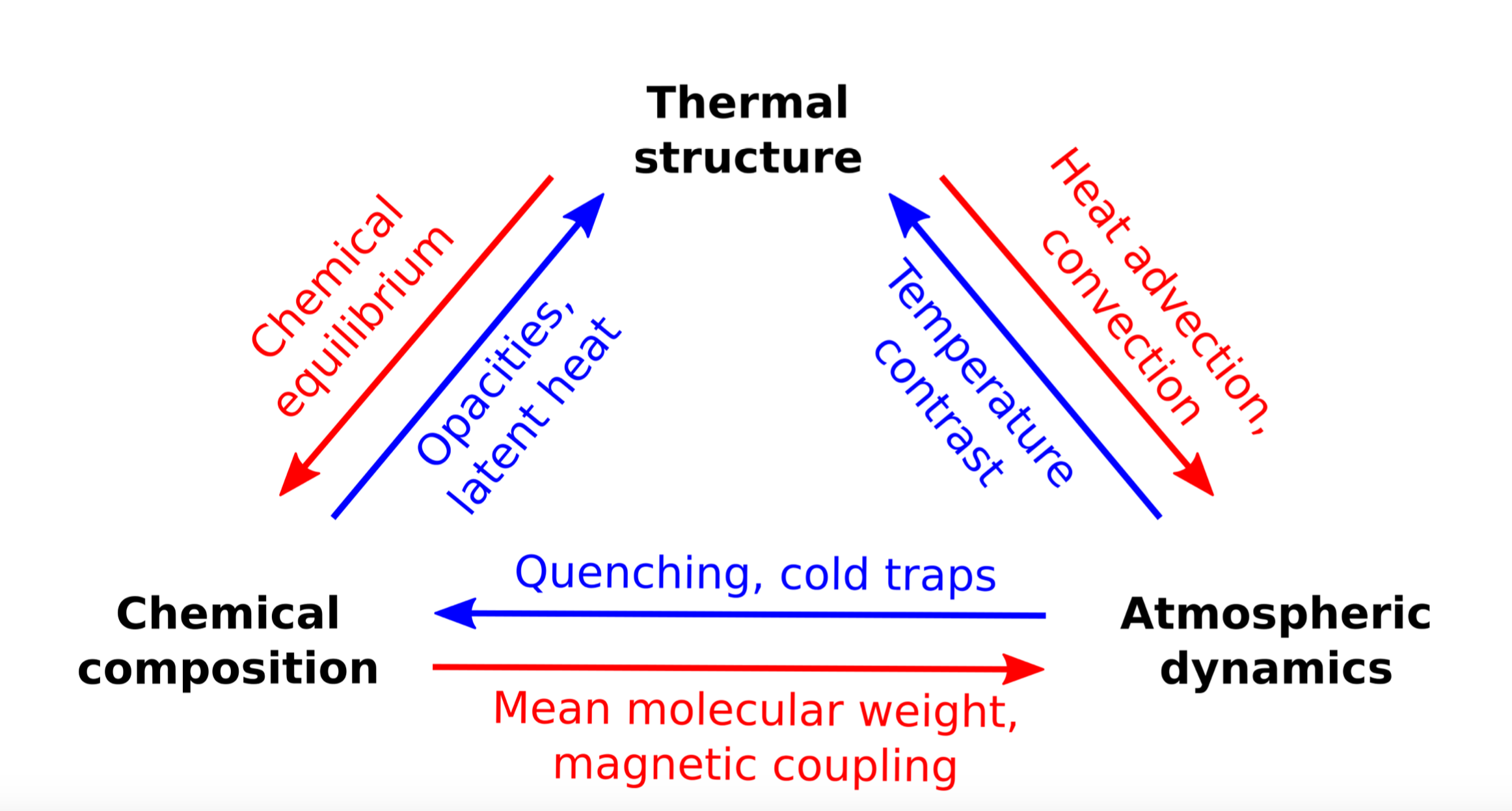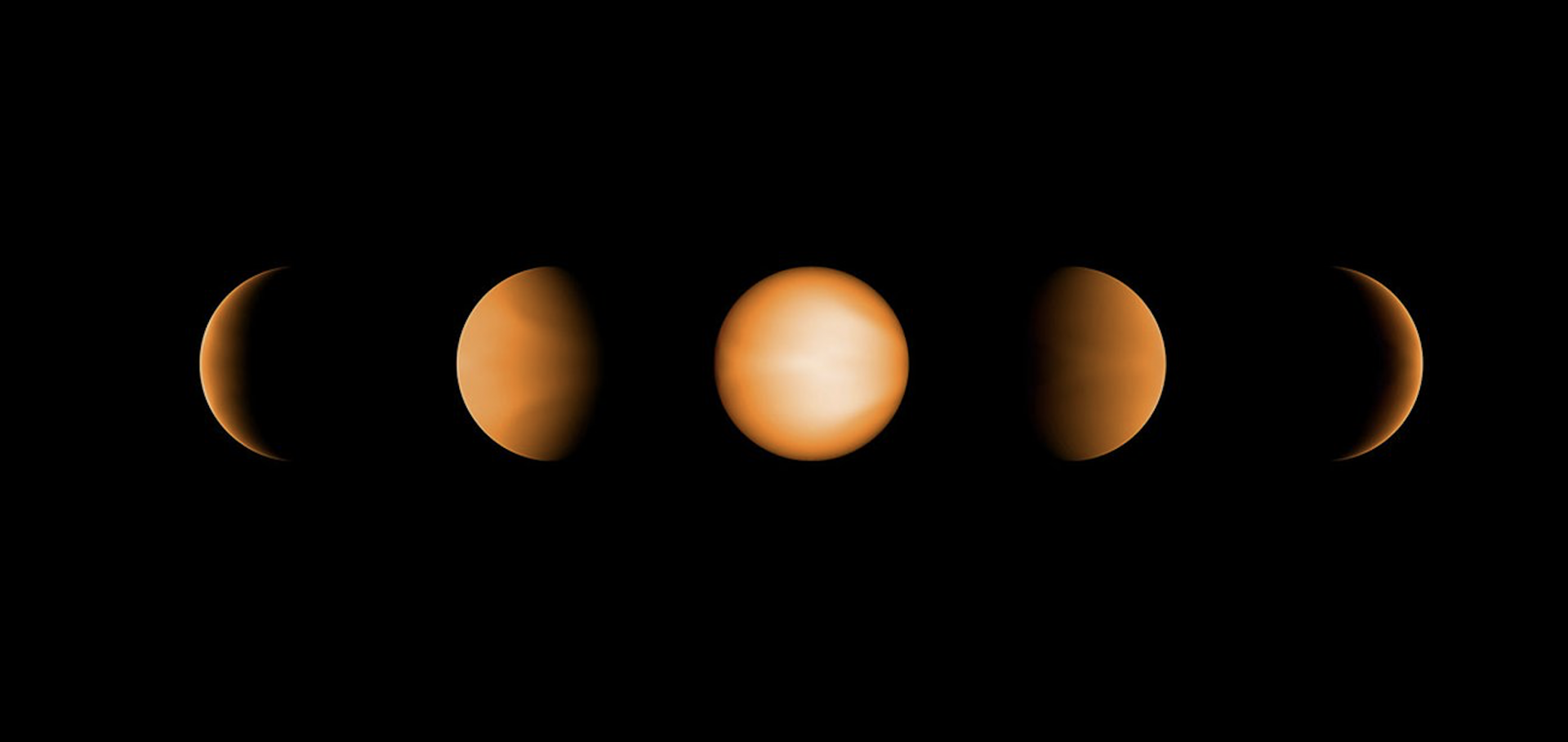Vivien Parmentier is associate professor in physics and a tutorial fellow at Somerville College. Our group develops theories supported by models of different complexities to interpret the current observations of exoplanet atmospheres and prepare for the next generation of telescopes. The group work is focused on planets that can already been observed by space-based (HST and JWST) or ground-based (ESPRESSO/VLT, IGRINS/Gemini) telescopes, such as hot Jupiters and warm Neptunes.

Our group studies the interactions between thermal structure, atmospheric dynamics and chemical composition of exoplanet atmospheres. The tools we use include 1D radiative/convective equilibrium (CHIMERA), global circulation models (SPARC/MITgcm), atmospheric chemistry (VULCAN) or cloud formation models (DHIRT) and retrievals (NEMESIS). We are particularly interested in how the 3D thermal, chemical and cloud structure of exoplanet atmospheres are important to interpret their observed spectra.
Recent topics of interest include:
-- Modelling the dichotomy of ultra-hot Jupiters, planets with a dayside hot enough to dissociate hydrogen but a nightside cold enough to form clouds.
-- Modelling the spectra of hot Jupiters at high-resolution, where information about the wind speed in the planet can be gathered.
-- Estimating the effect of nightside clouds on the phase curve of hot Jupiter atmospheres.
-- Modelling the interaction between ammonia and water clouds in our own Jupiter.
-- Determining the best methods to retrieve the elemental abundance of a planet from its emission spectra when 3D effects or clouds are present.


